
Powering an ‘arm’ with air could be mighty handy
Rice University mechanical engineers develop a textile-based energy harvesting shoe able to power assistive devices for people with disabilities.

Powering an ‘arm’ with air could be mighty handy
Rice University mechanical engineers develop a textile-based energy harvesting shoe able to power assistive devices for people with disabilities.
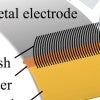
Brushing thin films onto electrodes preserves batteries
Brushing powdered phosphorus and sulfur into lithium anodes helps keep them from forming damaging dendrites in rechargeable batteries.

Biomedical, data science training wins new grant
The Rice University NLM Training Program in Biomedical Informatics and Data Science wins a $4.16 million National Library of Medicine grant.

Rice, NASA extend Space Act Agreement
Rice and NASA extend their pact to share research and outreach through a Space Act Agreement.
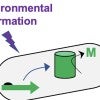
Rice team eyes cells for sophisticated data storage
Rice University receives National Science Foundation support to turn living cells, starting with bacteria, into random-access memory devices. These will be able to store and report data about their environments.
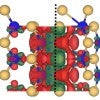
2D boundaries could create electricity
Rice engineers lead study to create piezoelectricity in two-dimensional phase boundaries. They could power future nanoelectronics like sensors and actuators.
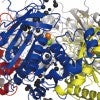
Rice models moving ‘washers’ that help DNA replicate
Rice researchers model a key mechanism by which DNA replicates. The study could help identify new targets to treat disease.
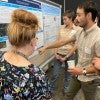
IBB picks top posters by summer research undergrads
The Institute for BioSciences and Engineering holds its annual Summer Research Experiences for Undergraduates symposium and poster competition.
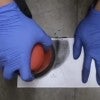
Water can’t touch this sanded, powdered surface
Rice scientists and engineers develop a one-step method involving sandpaper and powder to make robust superhydrophobic materials.

Most but not all Texas coaches say they’ll plan for climate change
A survey of Texas college and high school coaches, trainers and athletic directors suggests many are not taking climate change into account as they plan their programs’ futures.
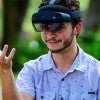
VegSense makes sense for forest studies
Rice ecologists have created open-source software to rapidly gather field data with Microsoft’s mixed reality headset.
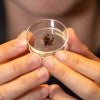
Rice engineers get a grip with ‘necrobotic’ spiders
Rice University engineers find they can manipulate the legs of dead spiders to serve as grippers.
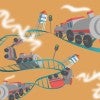
Synthetic tools conduct messages from station to station in DNA
Bioengineers used deactivated Cas9 fusion proteins to synthetically control gene expression and reveal new details about natural processes in human cells.
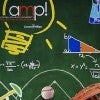
AMP! ramps up for a new year of STEM training for teachers with a day at Minute Maid Park.
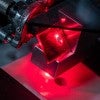
Strain-sensing smart skin ready to deploy
Carbon nanotubes’ natural fluorescence enables a method to detect high strain concentrations, which can lead to damage that threatens the integrity of critical infrastructure like aircraft, buildings, pipelines, bridges and ships.